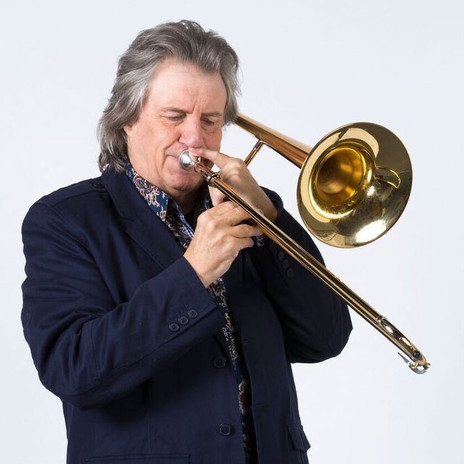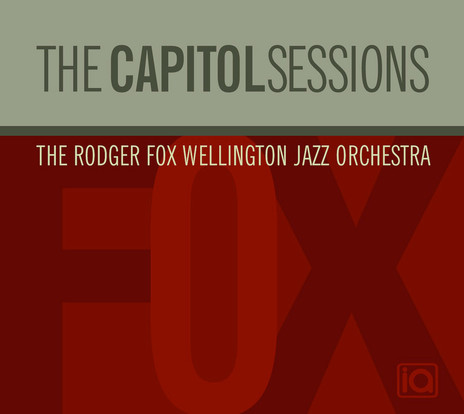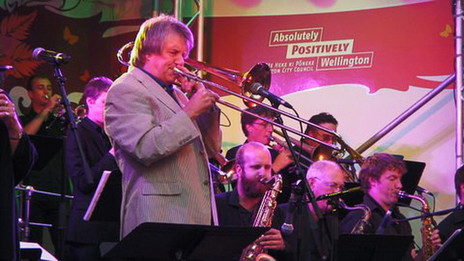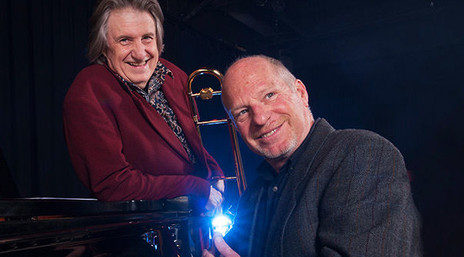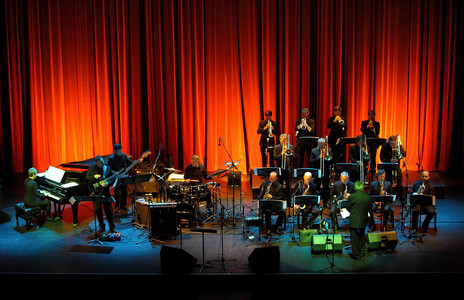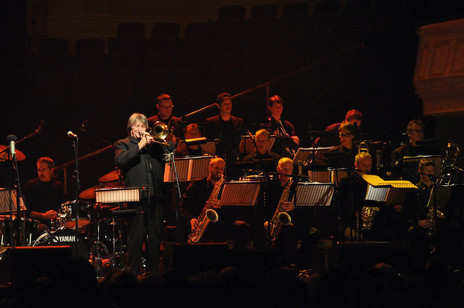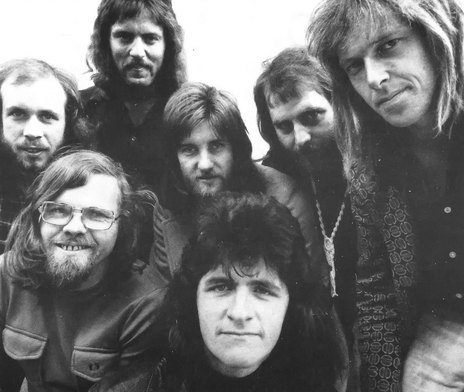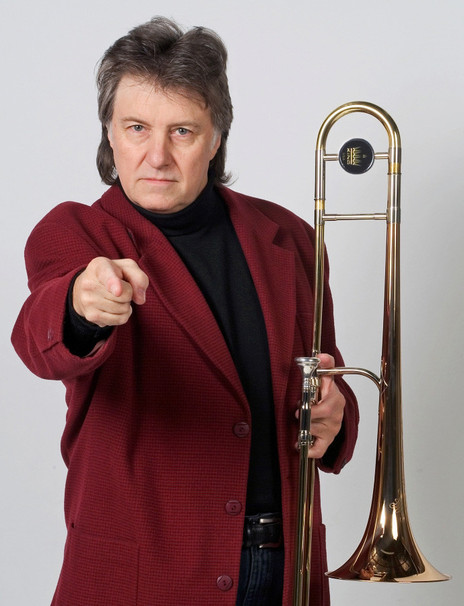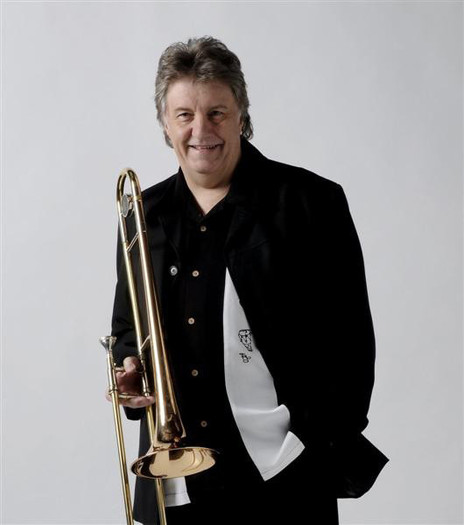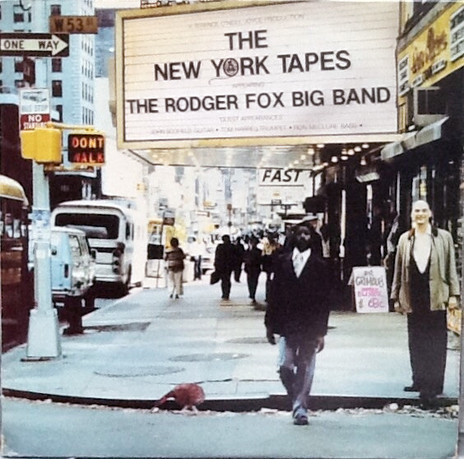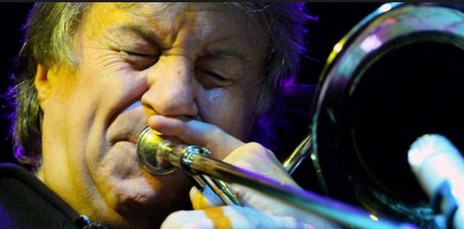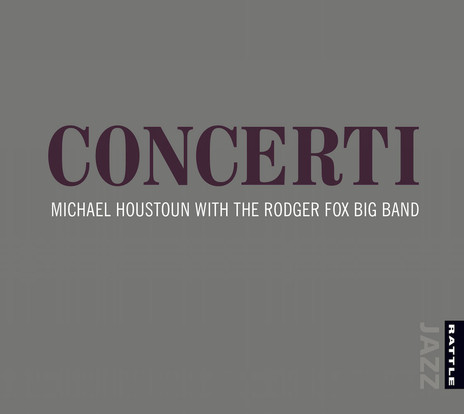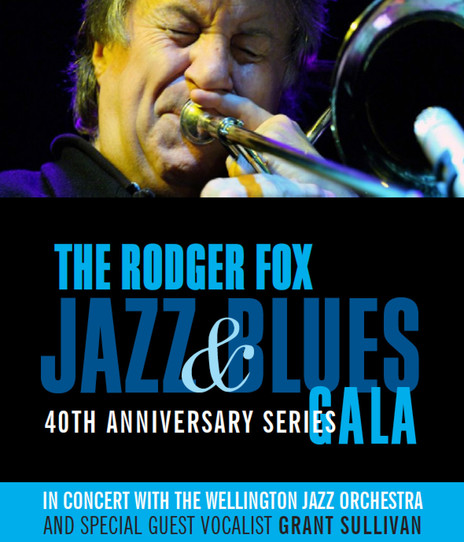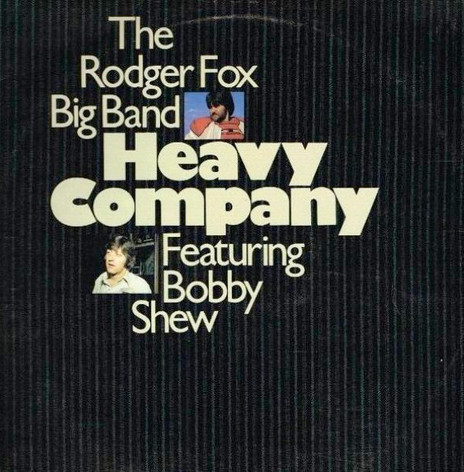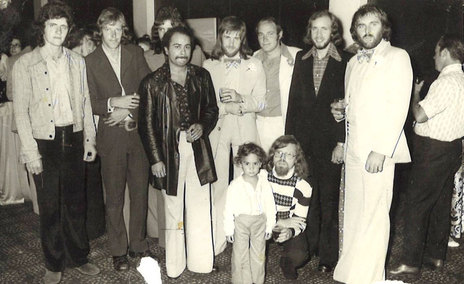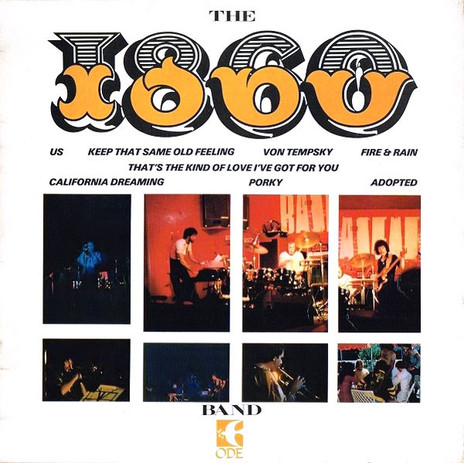Louis Fox’s career took the family wherever the opportunities arose. Rodger was born 7 January 1953 in Christchurch but spent his childhood years in Invercargill, Gore, Hawera and Wellington. When he was seven he was given a violin to learn and he hated it. He took piano lessons at age 11, followed by cornet and trumpet shortly after.
By now, Louis Fox was Head of Music at Mana College, where Rodger was enrolled. “I wanted to play trumpet,” Fox says, “but Dad gave me a trombone. The Mana College Big Band was short of trombone players!”
And so Rodger Fox spent his early teenage years studying classical trombone. School over, in 1969 he was accepted as an apprentice in the National Youth Orchestra, only to be advised just weeks prior to starting that a mistake had been made and the orchestra already had its quota of trombone players. As chance would have it, it wasn’t such a bad thing. A different type of musical education was about to begin.
Fox read a newspaper ad seeking brass players, placed by Malcolm Hayman, leader of The Quincy Conserve. “This was the age of Chicago and Blood Sweat & Tears,” says Fox, “and Quincy Conserve was as close as we got in New Zealand. I think I got the job because I could read music well, although I couldn’t improvise at that stage. Not long after I arrived I was made redundant when [saxophonist] John McCormick wanted to get back into the band, but I was soon in the line-up again. There weren’t that many accomplished brass players around.”
Fox spent five years with The Quincy Conserve and credits Hayman with much of his musical education.
Fox spent five years with The Quincy Conserve and credits Hayman with much of his musical education, not just in terms of playing but with the business side as well. “Malcolm had a reputation for being a hard taskmaster, which he was, but he had no tolerance for anything less than one hundred percent, and that is a good attitude in music. And it was great money in the early days. It was a family joke that I made more money than my father, who was Head of Music at Mana College!”
During the Quincy years, Fox started the side project which would dictate his post-Quincy career. In 1973 he formed his first big band, The Golden Horn Big Band, named after the sponsor (and Fox’s employers), a Wellington music store.
“A defining moment in my life was when I was around 18 and came across an album by Woody Herman’s big band,” he says. “From that point on I looked at the possibility of forming a big band and that opportunity surfaced in 1973.
“The radio bands, which had been so important to brass players for decades, had wound down and it was frustrating wanting to explore big band music without playing it. With my friend Alan Nelson, we formed The Golden Horn Big Band. Alan handled the administration.”
There was resentment from Wellington’s older brass players – Fox, shoulder-length hair, was just 20 years old – but as the number of performances increased, so did acceptance. Tony Noorts was the first old-school player to join; the ace alto sax player’s career dated back to the 1950s. Others followed but it was still mostly “long hairs” hankering to play big band jazz.
In 1975 Fox was approached by the manager of the 1860 Tavern to present a Saturday afternoon jazz combo. Culling the line-up from Quincy members, these weekly performances became an institution and within 12 months led to a six-nights-a-week residency for The 1860 Band. By that time, Quincy Conserve had folded.
“I think was right time, right place,” says Fox. “Artists like George Benson, Chuck Mangione and the Jazz Crusaders were being played on the radio. There was Steely Dan and the Average White Band, Weather Report, Return To Forever … jazz seemed to have grown an audience.”
Meanwhile, The Golden Horn Big Band was playing the New Zealand jazz festivals, mixing an old-school repertoire with more modern fare. “Most of the players, the brass players, were from commercial bands, who joined up because it was a rare opportunity. Our first featured vocalist was Dave Feehan, who sang Blood Sweat & Tears-type stuff.”
In 1978 the now-named Rodger Fox Big Band played Sydney’s premier jazz venue, The Basement, and the Sydney Musicians’ Club; an old friend of Fox’s, Dalvanius Prime, then Sydney-domiciled, arranged a handful of further gigs.
It was also in 1978 when Alan Nelson returned from the Montreux Jazz Festival. He’d met festival director Claude Nobs and told him of this big band from down under. “If they can get here, they can play,” Nobs told Nelson. Over the next two years the Rodger Fox Big Band fund-raised incessantly, raising the required $68,000.
Fox remains diplomatic and tight-lipped about the lack of government support his big bands have received over the years. “Alan Highet, then Minister of Arts, arranged a $15,000 grant and that remains the only grant the big bands have ever received, although APRA gave some assistance to get us to Montreux.”
The Rodger Fox Big Band played at the Montreux Jazz Festival in 1980 and 1981.
The Rodger Fox Big Band played at the Montreux Jazz Festival in 1980 and 1981. Both main performances were recorded and released on album in New Zealand. In the years since, from Montreux to Monterey, Fox’s big bands have played most of the world’s top jazz festivals.
In 1980, following a performance at Trillo’s in Auckland, Fox met notable American trumpeter Bobby Shew. Impressed with the big band’s prowess, Shew was instrumental in getting American players (including Shew himself) to guest on concerts and tours with the Fox bands.
The number of “name” players who have guested with Fox runs into dozens (Fox estimates the number of New Zealand players to be over 200). Marquee names he has performed with include some of the greats: Louie Bellson, Michael Brecker, David Clayton-Thomas, Randy Crawford, Charlie Musselwhite, Diane Schuur and Joe Williams.
In the years since, Rodger Fox has carved a legendary career. Collaborators include New Zealander Alan Broadbent (Journey Home, Best NZ Jazz Recording, 2011 NZ Music Awards), guitarist John Scofield (recording at New York’s famed Vanguard Studios) and the seemingly unlikely pairing with classical pianist Michael Houstoun for an album and tour. An even more unlikely pairing was with Richard Clayderman. “He’s actually quite a good jazz pianist,” says Fox.
In 2012 Fox’s Wellington Jazz Orchestra gave five US performances followed by an album recorded at another famed studio, Capitol Records in Los Angeles. Fox is particularly proud that he persevered in bringing Michael Brecker to New Zealand. “I tried for eleven years but I got him in the end, possibly the greatest sax player in the world.”
It hasn’t all been playing and long before his now-acknowledged abilities as an educator, Fox studied, attending overseas workshops and completing a correspondence course with the Berklee College Of Music. As a promoter, he brought Randy Crawford and Maynard Ferguson to these shores. He has served as Artistic Director of the Manawatu Jazz & Blues Festival and during an Auckland spell in the 1990s he worked with Tommy Adderley on a number of jazz promotions. Adderley and Fox took over The Gluepot bookings for a brief period.
In the late 1980s, obliged to strip back the big band to a mere 12 members, Fox toured and recorded two albums with Midge Marsden. Other New Zealand vocalists he has worked with include Ray Woolf and Mary Yandall, his partner of the time. His partner for the past 20 years has been jazz/ blues singer Erna Ferry; the couple reside in Palmerston North.
“The Temptations wanted to know why us white guys were sitting at the back of the bus” – Rodger Fox
In 1984 Fox led the horns for the Four Tops and Temptations tour. “The Four Tops were fine but the Temptations were arseholes and wanted to know why us white guys were sitting at the back of the bus. We were given our own 12-seater for the rest of the tour.”
Now a lecturer at the New Zealand School Of Music, Rodger Fox received an honorary doctorate of music from Massey University in 2005, two years after he was made an officer of the New Zealand Order Of Merit. Rodger Fox has received no fewer than six jazz gongs at the NZ Music Awards.
The band names may change – The Rodger Fox Wellington Jazz Orchestra is the current moniker – but Rodger Fox’s vision has remained constant. “Big band music is timeless and big bands serve as great training grounds for musicians. I think there is room in New Zealand for a permanent government-supported big band. Now if Creative New Zealand was to look at that … ”
--
Rodger Fox passed away on 26 May 2024, looking forward to the Rodger Fox Big Band’s imminent performance at the gala concert of the Manawatu Jazz & Blues Festival.
